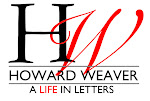The Cary News of North Carolina won three awards, including first place in the special projects category for its comprehensive, multimedia coverage of Cary Band Day, an annual high school marching band competition that draws some 28 different bands from throughout the Southeast to Cary, N.C.
“The Cary Band Day presentation produced by The Cary News is an outstanding example of journalism that combines wide community reach with vigorous, multifaceted coverage,” said Howard Weaver, McClatchy’s vice president, news, who judged the public service category. “As a result, readers leave this special presentation with a powerful sense of what a central event this marching band competition is for the community of Cary.”
The Cary News also won a first-place award in the sports category for its showcasing of high school athletes in both print and online video. The weekly newspaper finished second in the photo category for coverage of a Harry Potter party.
The Fort Mill Times, a weekly covering Fort Mill, S.C., won the first-place award for news. Also honored with first-place awards were the Sierra Star in Oakhurst, Calif., in the features category; and Lee’s Summit Journal in Lee’s Summit, Mo., in the photo category.
Staffers at various McClatchy daily newspapers not associated with the community publications judged the news, sports, features and photo categories.











